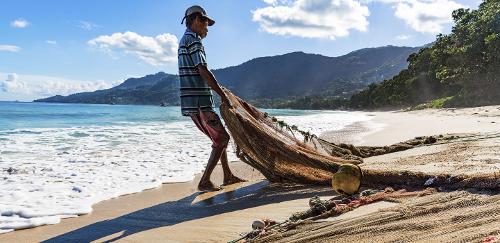TNC Explores Debt Swaps to Protect Southern Africa's Coastline

TLDR
- US nonprofit, TNC, explores debt-for-nature swaps and blue bond sales to fund marine conservation in southern Africa.
- Blue Benguela Partnership initiative targets marine conservation areas spanning South Africa, Namibia, and Angola.
- Goal is to increase marine conservation areas by 148,000 sq km and enhance management of existing 238,000 sq km, with Angola showing interest in debt-for-nature swap.
The Nature Conservancy (TNC), a US-based nonprofit, is evaluating debt-for-nature swaps and blue bond sales to finance marine conservation along southern Africa’s coastline.
The initiative, part of the Blue Benguela Partnership, covers 6,800 kilometers across South Africa, Namibia, and Angola. The goal is to expand marine conservation areas by 148,000 square kilometers while enhancing management of the 238,000 square kilometers already protected.
Debt-for-nature swaps, previously used by TNC in Belize and Gabon, involve governments redirecting savings from discounted debt purchases to fund conservation programs. Blue bonds would allow governments to raise capital directly for marine protection efforts. Angola has already expressed interest in exploring a debt-for-nature swap.
You can follow Daba’s reporting on Africa on WhatsApp. Sign up here
Key Takeaways
TNC’s approach leverages innovative financial instruments to secure long-term funding for marine conservation. By combining debt swaps, blue bonds, and institutional funding, the Blue Benguela Partnership aims to protect critical ecosystems, enhance fisheries management, and foster sustainable aquaculture. This multi-country effort reflects a growing commitment to biodiversity and climate resilience in the region.

Next Frontier
Stay up to date on major news and events in African markets. Delivered weekly.
Pulse54
UDeep-dives into what’s old and new in Africa’s investment landscape. Delivered twice monthly.
Events
Sign up to stay informed about our regular webinars, product launches, and exhibitions.




